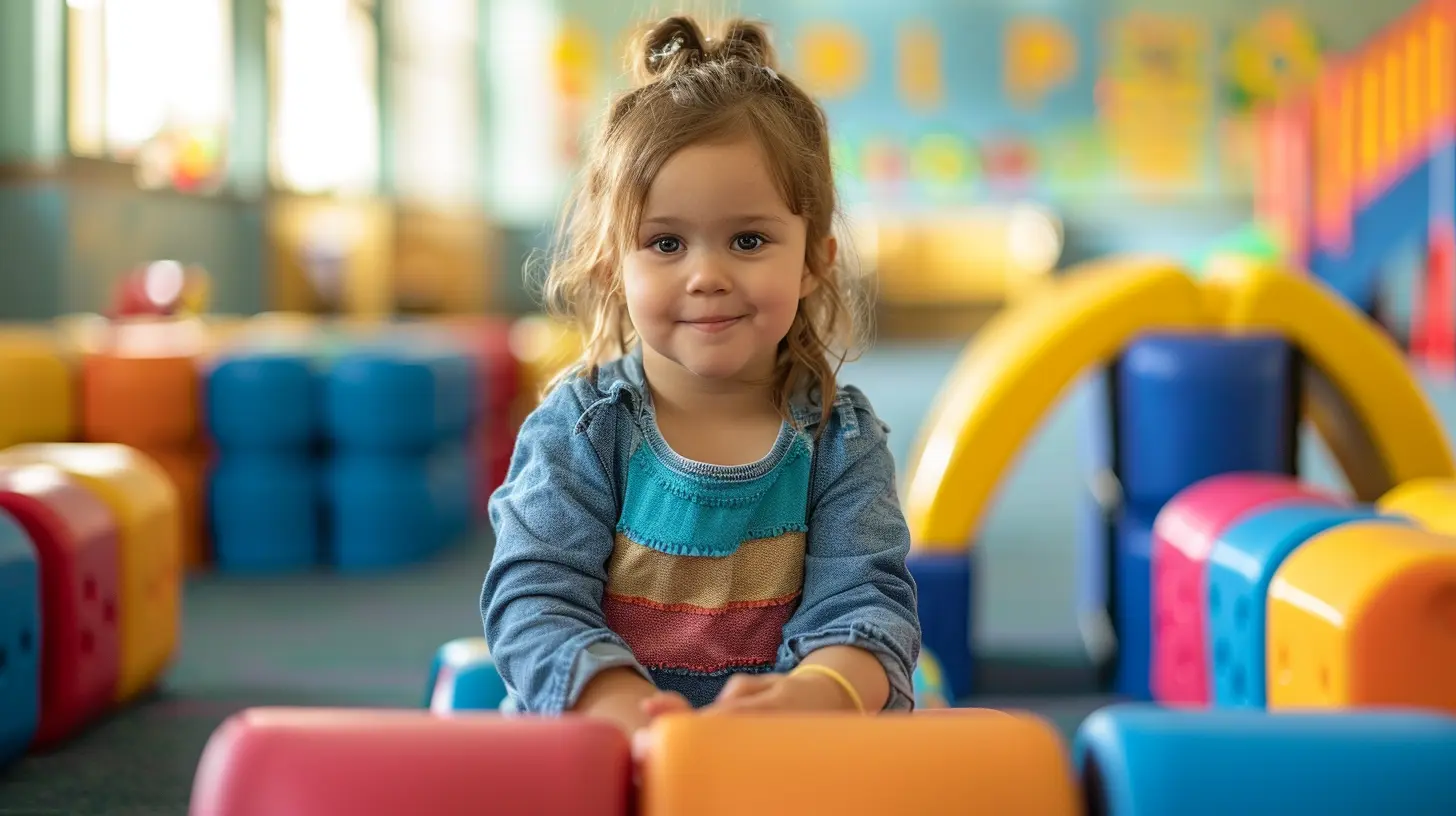Nurturing Confidence in Preschool-Age Children
1 November 2025
Confidence is like a superpower for little kids. When a child believes in themselves, they are more likely to try new things, make friends easily, and handle challenges with courage. But confidence isn’t something kids are just born with—it’s something that we, as parents and caregivers, can help them develop.
If you’ve ever watched your preschooler hesitate before climbing the playground slide, or avoid speaking up in a group, you might wonder how to help them feel more sure of themselves. The good news? Confidence is built through small, everyday experiences, and you play a key role in shaping it.
In this article, we’ll dive into practical ways to nurture confidence in preschool-age children, ensuring they grow up feeling capable and secure in themselves.

Why Confidence Matters in Preschoolers
Confidence isn’t just about being outgoing or fearless—it’s about believing in one’s abilities. When preschoolers feel confident, they:- Are more willing to try new things.
- Handle mistakes with resilience.
- Develop strong problem-solving skills.
- Build positive relationships with peers.
- Feel secure in their own identity.
A confident child doesn’t have to be the loudest one in the room. They simply need to trust in their abilities and feel comfortable in their own skin. Now, let's talk about how you can help foster this self-assurance.

1. Offer Praise (But Make It Meaningful)
We all love praising our kids, but not all praise is created equal. Saying “Good job!” for every little thing might not be as impactful as you think. Instead, focus on specific and genuine praise.✅ Instead of saying: "You're so smart!"
Try: "I love how you kept trying until you figured out how to build that tower!"
When praise highlights effort rather than just results, kids learn that hard work and persistence matter. This encourages them to keep trying, even when things get tough.

2. Encourage Independence
Letting preschoolers do things on their own (even if it takes longer) is a huge confidence booster. Imagine how proud a child feels after putting on their own shoes or pouring themselves a drink.Give your child small, age-appropriate responsibilities like:
- Dressing themselves (even if the socks end up mismatched).
- Helping set the table.
- Watering plants or feeding a pet.
Every time they accomplish something without help, their confidence grows. Yes, it might be messy or take extra time, but those little moments of independence are worth it.

3. Let Them Make Mistakes
It’s natural to want to protect your child from failure, but mistakes are valuable learning experiences. When preschoolers realize that messing up isn’t the end of the world, they become more willing to try new things.Imagine your child struggling to complete a puzzle. Instead of stepping in immediately, encourage problem-solving:
💡 Say: "Hmm, I see you're stuck. What piece do you think might fit?"
By guiding rather than rescuing, you teach them perseverance and problem-solving skills—two key ingredients for confidence.
4. Model Confidence Yourself
Kids are little sponges—they pick up on everything we do. If they see you doubting yourself or hesitating, they might start to do the same.Try this: Instead of saying "I’m terrible at math," say "Math is tricky for me, but I’ll keep practicing."
When kids see adults facing challenges with a growth mindset, they learn to do the same. Confidence isn’t about being perfect; it’s about believing you can improve.
5. Foster Social Skills
Social confidence is just as important as personal confidence. Preschoolers are learning how to interact with peers, and this can sometimes be tricky.Help your child build social skills by:
- Role-playing different social situations at home (like asking a friend to play).
- Encouraging playdates where they can practice sharing and taking turns.
- Teaching simple conversation starters, like “Can I play too?”
Positive social experiences make kids feel more comfortable interacting with others, boosting their overall confidence.
6. Give Them Opportunities to Succeed
Nothing builds confidence like success—especially when a child achieves something on their own. Create opportunities where your child can succeed, no matter how small.Start with manageable challenges like:
- Completing a simple craft project.
- Balancing on one foot for ten seconds.
- Helping bake cookies by stirring the dough.
Each little victory adds up, making kids feel more capable and enthusiastic about trying new things.
7. Resist the Urge to Compare
Every child develops at their own pace. Some kids are naturally more confident, while others take more time to come out of their shell. Avoid comparing your child to others—it can do more harm than good.Instead of saying: "Why can’t you be as brave as your cousin?"
Try: "I see you’re feeling shy. That’s okay! When you’re ready, you can join in."
Encouraging kids in their own time and in their own way helps build authentic confidence.
8. Let Them Express Themselves
Confidence grows when kids feel accepted for who they are. Let your child express themselves—whether that’s through their clothing choices, their favorite toys, or their creative projects.Even if your preschooler insists on wearing a superhero cape to the grocery store, remember: self-expression fuels self-confidence.
9. Listen and Validate Their Feelings
Sometimes, kids just need to know their feelings matter. When they feel heard and understood, they develop a stronger sense of self-worth.Instead of dismissing their fears with "Don't be scared," try saying:
"I can see you're nervous about trying the slide. Want to hold my hand the first time?"
Acknowledging their emotions helps them process feelings in a healthy way, making them feel secure and valued.
10. Encourage Play-Based Learning
Play isn’t just for fun—it’s how kids explore their abilities and learn social skills. Whether it’s building with blocks, pretending to be a firefighter, or painting a masterpiece, play builds confidence.Look for opportunities where your child can take the lead in play. Ask open-ended questions like:
- "What happens next in your story?"
- "How do you think we can build the tallest tower?"
When kids feel like their ideas matter, their confidence skyrockets.
Final Thoughts
Nurturing confidence in preschool-age children isn’t about pushing them to be fearless—it’s about giving them the tools to believe in themselves. Through encouragement, patience, and plenty of opportunities for growth, you can help your child develop the self-assurance they need to navigate the world with courage.Remember, confidence is a journey, not a destination. Every small step your child takes towards believing in themselves is a win worth celebrating!
all images in this post were generated using AI tools
Category:
Parenting PreschoolAuthor:

Maya Underwood
Discussion
rate this article
1 comments
Gemma Horne
Nurturing confidence in preschoolers is essential for their emotional and social development. Simple strategies, such as offering praise, encouraging independence through decision-making, and creating a safe space for exploration, can significantly bolster their self-esteem and resilience, setting a positive foundation for future challenges.
November 4, 2025 at 4:10 AM

Maya Underwood
Thank you for highlighting these key strategies! Building confidence in preschoolers is indeed crucial for their overall development, and your suggestions are practical and effective.


